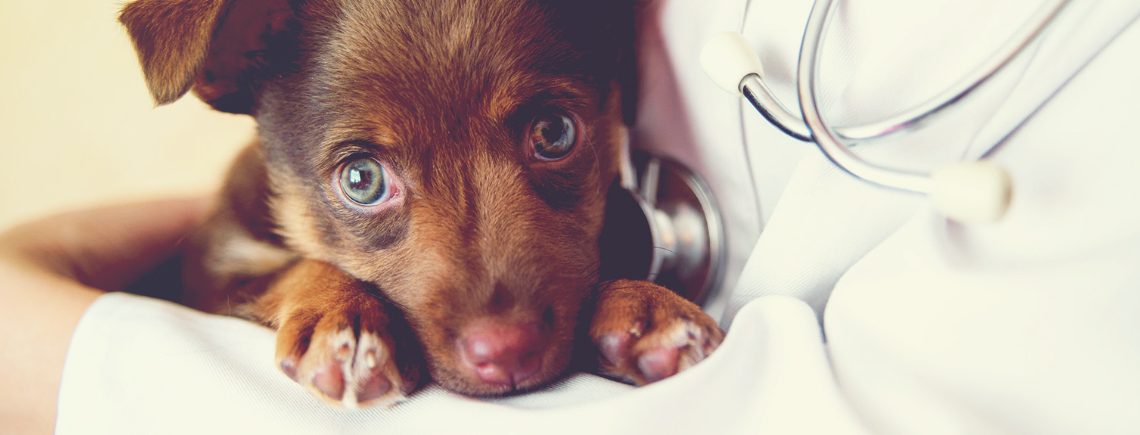Vaccinations and your Puppy
Why Should I Vaccinate My Puppy?
Bringing home a new puppy is a very exciting time. There’s a list as long as your arm of things to prepare for the new arrival-food bowls, beds, puppy pads, crates, toys…you want to make sure your new four legged friend is as comfortable and as happy as they can be.
Providing the right care and treatment is essential to maintaining your puppy’s health, and getting your puppy’s vaccinations is one of the most important things to do as a new puppy parent. Just like a new born baby, puppies are vulnerable to disease and can become seriously ill if not protected against these diseases. If an unvaccinated puppy comes into contact with diseases like parvovirus or leptospirosis, the consequences could be fatal.

Carol Doyle, BSc VN DVM
Carol DoyIe is a small pet veterinarian in a practice in Ashbourne, Co. Meath and is the human companion to her cats, Nala and Donal, two horses - Indie and Bella, and her dog Phoebe.
As a guest blogger and advisor, Carol shares her professional advice with pet owners, answering many of the questions that she gets asked regularly in-clinic.
When Should My Puppy Get Vaccinated?
A puppy must stay with his mother until he is between six and eight weeks old. He would have received antibodies from his mother’s milk that protect him against disease, but this immunity only lasts a few weeks.
Often dog breeders and rescue centres will make sure their puppies have had their early vaccinations before they go to their new families. They can provide any records of vaccinations the puppies received once you are ready to bring them home.
The first vaccination is generally given in two doses, the first at 6-8 weeks of age and the second dose is usually at 10-12 weeks of age. Your dog will then need annual booster vaccinations for the rest of his life to ensure he remains fully protected against disease.
You should always follow the recommended vaccination schedule provided to you by your vet, as if there is too long a break between your dog’s shots, they may no longer be completely protected.

What Shots Does My Puppy Need?
Your puppy will be vaccinated against common diseases that are extremely contagious and could result in serious illness or even death. Such diseases include:
| Canine Parvovirus | A deadly disease that can cause vomiting and diarrhoea, it is very contagious and is often spread through infected faeces, soil or people. |
| Leptospirosis | A widespread disease that can cause organ failure, it can occur very quickly and can leave a dog with life-long health problems. |
| Canine Distemper | A highly transmissible illness with no cure, it is spread by discharges from the noses and eyes of infected dogs as well as urine. It can lead to seizures, paralysis and ultimately, death. |
| Canine Infectious Hepatitis | Also called canine adenovirus, the liver and respiratory system is attacked by this disease which is spread by coming into contact with infected blood, saliva, faeces or urine. |
| Canine Parainfluenza | A highly contagious airborne infection that affects the respiratory system, it usually develops if many dogs are in close proximity to each other, such as at the kennel or a training class. Symptoms include a dry, hacking cough, high temperature, sneezing and/or a runny nose, eye inflammation, depression and lethargy. |
| Kennel Cough | Very infectious but not as severe as the other diseases listed, vaccination is essential if your puppy will be in contact with other dogs such as in training classes, grooming studios, kennels etc, and can develop from canine parainfluenza. Symptoms include a dry, hacking cough, and can be more serious in puppies or older dogs. |
| Rabies | Although Ireland the UK are rabies-free, if you plan on travelling with your dog to other countries, you may need a rabies vaccine. Check with your veterinarian first and follow their recommendations if you plan on travelling. |
Going To The Vets
Your puppy’s first visit to the vets will consist of a fully body examination to ensure they are fit and healthy to be vaccinated. Your vet will then give the puppy a small injection into the scruff of the neck. Your puppy can also be treated for fleas and worms if it is suitable at this time.
Puppies should keep a distance from other dogs until they are fully immunised, so bear that in mind when taking them to the vets for the first time and to keep an eye on them in the waiting room. Wait until your vet gives the all clear and then you can safely bring your puppy out for fun walks in the park and to socialise with other dogs.
Join the Petmania Puppy Club
Get exclusive access to discounts, care advice and step-by-step guidance through your puppy’s first year.


